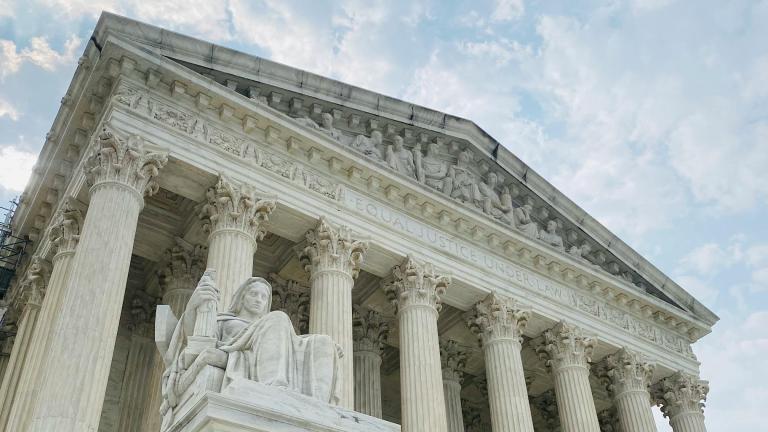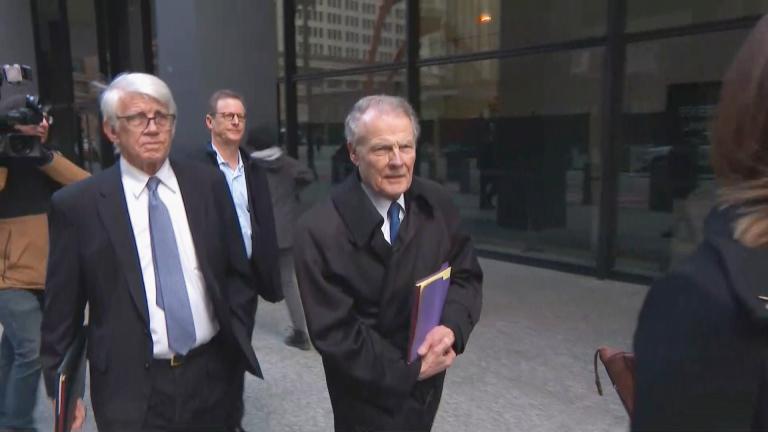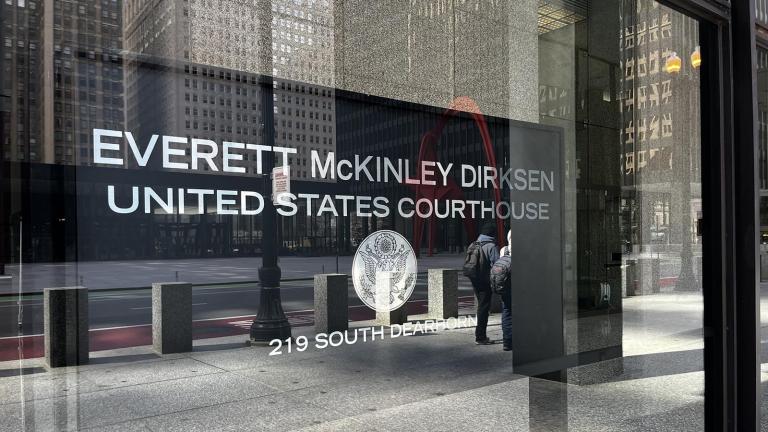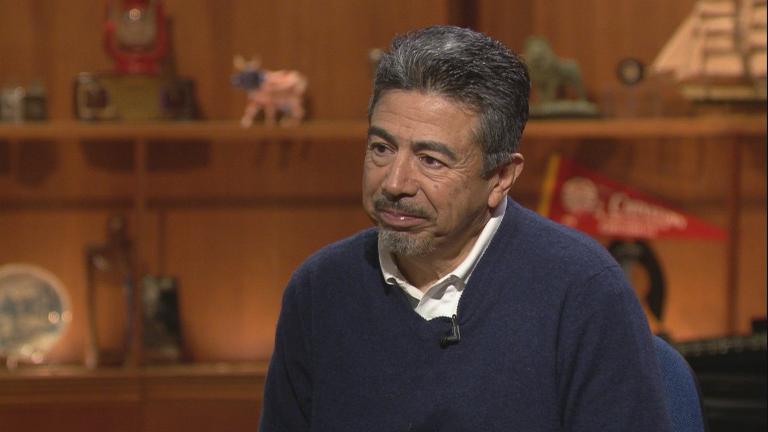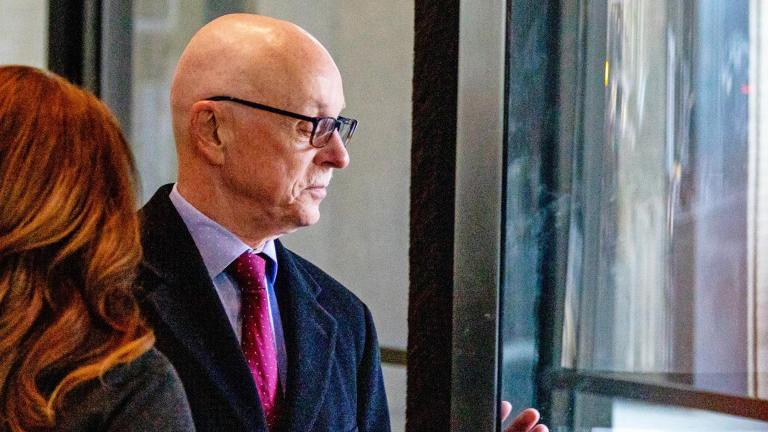Video: Our politics team of Amanda Vinicky, Heather Cherone and Paris Schutz weighs in for this week’s edition of “Spotlight Politics.”
The main orchestrators of an alleged bribery scheme targeting Illinois House Speaker Michael Madigan officially began fighting the charges on Wednesday.
Madigan’s longtime trusted confidant and former Commonwealth Edison lobbyist Mike McClain, former ComEd CEO Anne Pramaggiore, retired ComEd executive John Hooker and ex-City Club of Chicago president and former ComEd consultant Jay Doherty each, through their attorneys, entered pleas of not guilty during a court hearing that was held remotely due to the coronavirus.
The four defendants can remain free on recognizance bonds, though they had to surrender their passports and agree to travel only within the U.S.
ComEd admitted this summer to participating in a nine-year enterprise of secretly funneling money to Madigan loyalists; the blueprint of the scheme was detailed in the deferred prosecution agreement the utility reached this summer with the U.S. attorney’s office.
The 50-page indictment released Nov. 18 accuses Pramaggiore and Hooker of cooking ComEd’s books as they conspired to pay Madigan loyalists for doing little or no work; Doherty allegedly was used as the pass-through. McClain helped to make the arrangements and otherwise worked with ComEd’s leadership to make “our friend” – believed to be Madigan – happy by getting ComEd to hire interns from the 13th Ward and having ComEd give Juan Ochoa a lucrative seat on ComEd’s board of directors.
McClain attorney Patrick Cotter last month in a statement called the charges “meritless” and said that prosecutors were trying to apply pressure on him and the other defendants as part of a zealous effort to bring down Madigan.
“Mike McClain cannot agree to allegations that are untrue, even to escape the crippling of the Government’s attacks,” the statement reads. “Mike McClain absolutely denies that he has committed any crime, and he will fight these charges as long as it takes, and as long as his age and health allow.”
But a fifth perpetrator of the bribery plan, previous ComEd Vice President Fidel Marquez, pleaded guilty in September to a corruption charge and is cooperating with prosecutors.
A status hearing for McClain, Doherty, Hooker and Pramaggiore is scheduled for Feb. 16.
Prosecutors said they will begin to privately share their “quite voluminous evidence” with the defense on a rolling basis starting in a few weeks.
Neither the defense nor the prosecution objected to Judge Harry Leinenweber presiding over the case, despite his disclosing at the start of Wednesday’s hearing that he served as a Republican in the Illinois House from 1973 to 1983, the same period that McClain was across the House aisle serving as the state representative for the Quincy area.
Leinenweber said he and McClain were never close and “I don’t think I’ve seen him in the past 40 years or so” but that he wanted it on the record.
That means that Leinenweber likewise served in the General Assembly with Madigan, who first became a member of the House in 1971.
By ’83 Madigan had risen to speaker, a role he’d held for all but two years (when Republicans won the majority in the House) since.
He’s in serious risk of losing that title now, even though the speaker has not been charged, and has denied any knowledge of the purported bribery plan; in statements Madigan has said he is offended by the notion he could be bribed.
But Madigan has not directly answered questions from journalists, and he declined an invitation to testify before a rare House committee convened at Republicans’ urging to investigate whether his conduct – legal or not – is “unbecoming” of an elected legislator.
State Rep. Tom Demmer, R-Dixon, said that internal ComEd emails released last week show that Madigan was part of discussions with McClain, and if Madigan continues to refuse to answer the special investigative committee’s questions he should resign.
Demmer accused Democrats of stalling, noting the special investigative committee has only met twice since it was formed in early September.
An attempt by Demmer and the panel’s two other Republicans to subpoena Madigan was thwarted by the committee’s chair, State Rep. Emanuel “Chris” Welch.
House GOP Leader Jim Durkin said in a press conference he likewise called on Madigan to resign both as speaker and as a state representative.
“The common denominator with al of these defendants … is the Speaker of the Illinois House of Representatives and the chair of the Illinois Democratic Party, and that is Michael J Madigan. All roads in this massive and wide-ranging scandal lead to Speaker Madigan,” Durkin said.
Welch called Republicans’ remonstrations political theater, and said the GOP’s actions threatened to interfere with the federal investigation despite the U.S. attorney’s office earlier giving clearance for the panel to go forward.
Welch said that Durkin was “seeking a public distraction” from his being named in a few of the emails ComEd released just before Thanksgiving that Welch said show “the company took the same steps to influence him that he would now portray as unbecoming conduct.”
“(Durkin’s) constant attempts to drag a serious investigative effort into politics will not influence the work of this committee,” Welch said in a statement.
Durkin denied seeking favors from ComEd, and said the focus of the committee should be on the bribery scandal.
The investigative panel is set to meet again on Dec. 14.
Welch recently tested positive for the coronavirus, but his isolation period will be completed before that hearing.
Follow Amanda Vinicky on Twitter: @AmandaVinicky

